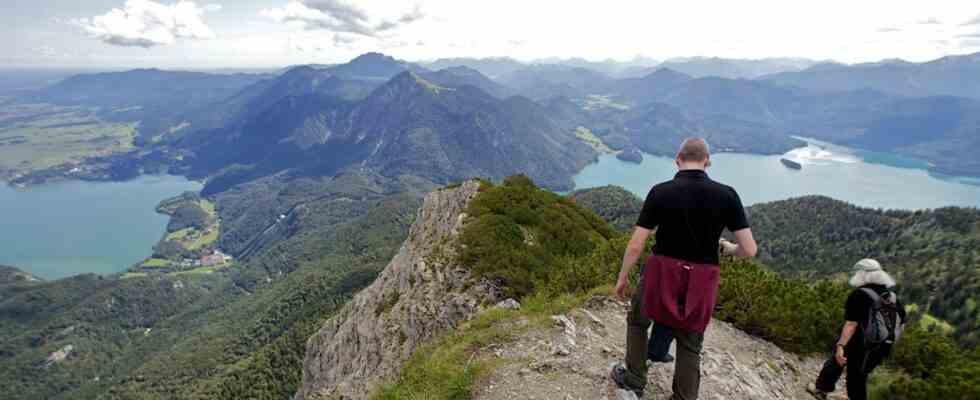Russia’s war of aggression in Ukraine has had unexpected effects on the transport and forwarding industry. Since February 24, diesel fuel prices have increased. This is also what drives the bus companies that operate local public transport in the district. Matthias Schmid, responsible for public transport in the district office, reported the problems to the district infrastructure committee. The entrepreneurs have a specific request to the district: it should take over the higher fuel expenses. However, because this is not part of the existing contracts, but would be a voluntary service, the district councilors were not very enthusiastic.
On the agenda was actually the frequency increase on line 9608 from Kochel am See to Garmisch-Partenkirchen. In future, the bus should run every half hour during the summer months – only on weekends. In the district’s local transport plan, this frequency increase was given priority 1. However, because this also entails additional costs, the district of Garmisch-Partenkirchen did not go along with it. Therefore, the buses should only run every half hour on weekends to Walchensee, turn around in a parking lot at Einsiedl and carry the passengers back to Kochel via the Kesselberg. Regionalverkehr Oberbayern GmbH (RVO) has submitted an offer to the district to introduce two additional buses on the route not only with the timetable change, but from June 4th – provided that the district council agrees to the proposal at the end of May. The costs for this year alone – the additional buses would be in use until the end of October – are around 65,000 euros. The RVO cannot make any statements about the costs for the following years because it cannot estimate the development of fuel prices, according to the letter to the district office.
In principle, the committee supports the expansion of public transport. Relief for the communities of Kochel and Walchensee, which suffer extremely from excursion traffic on nice weekends, is important, so the tenor. As a Jachenauer, Georg Riesch (free voters) knows what he is talking about. He asked whether the additional buses on classic excursion weekends were worth it if they were also stuck in traffic on the Kesselberg. According to Riesch, buses are only accepted and cars are left at home if there is an attractive, fast connection. “If no one gets into their car, it’s worth something,” replied Schmid. In traffic jams, of course, the buses wouldn’t go any faster, he admitted. Michael Häsch (CSU) wanted to know how the line was accepted – and whether there was a proposal to cover the additional costs. In bad weather, the buses on this line would not be used much, said Schmid. But in the summer there is “potential”.
The fuel prices for diesel and petrol rose enormously during the war in Ukraine. This also causes problems for bus operators.
(Photo: Michael Kappeler/dpa)
When it came to covering costs, Schmid addressed the fuel problem. Not only the bus companies in the MVV area reported. The RVO, which operates the buses in the southern district, is also at the door. For March alone, the district is to compensate 108,000 euros. The request of the bus companies is that the district should bear their additional costs until April 2023 if the high fuel prices remain. Schmid had a cover proposal ready for both the costs for the increase in frequency and the cost explosion in fuel prices. Bad Tölz-Wolfratshausen received 779,000 euros from the federal government’s Corona rescue package. With the annual accounts, you finally got back 750,000 euros. “This is an unplanned repayment,” said Schmid, which would be enough for both. In the MVV association, the tendency is to comply with the request of the bus companies because of the fuel prices. The Committee remained cautious about the budget situation. He agreed to the increased frequency of line 9608. Lydia Hofherr, Toni Ortlieb and Franz Schöttl (CSU) voted against it.

